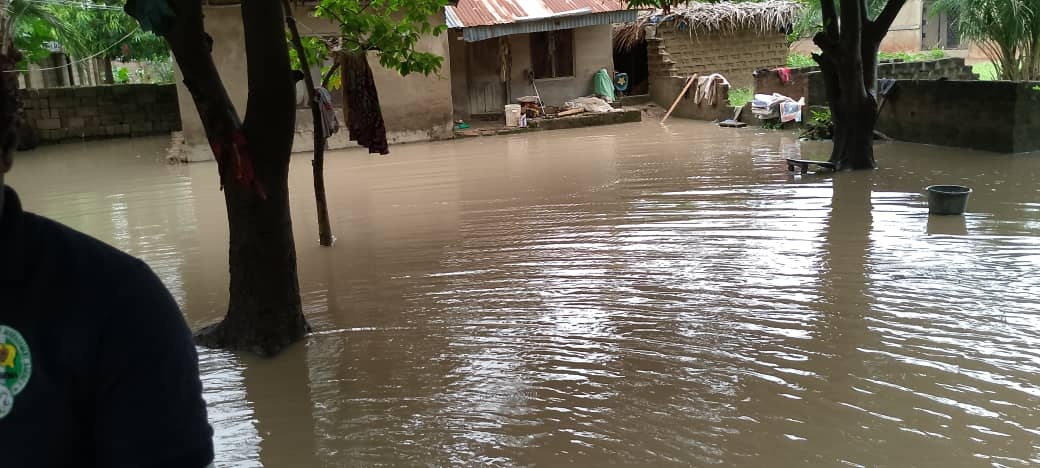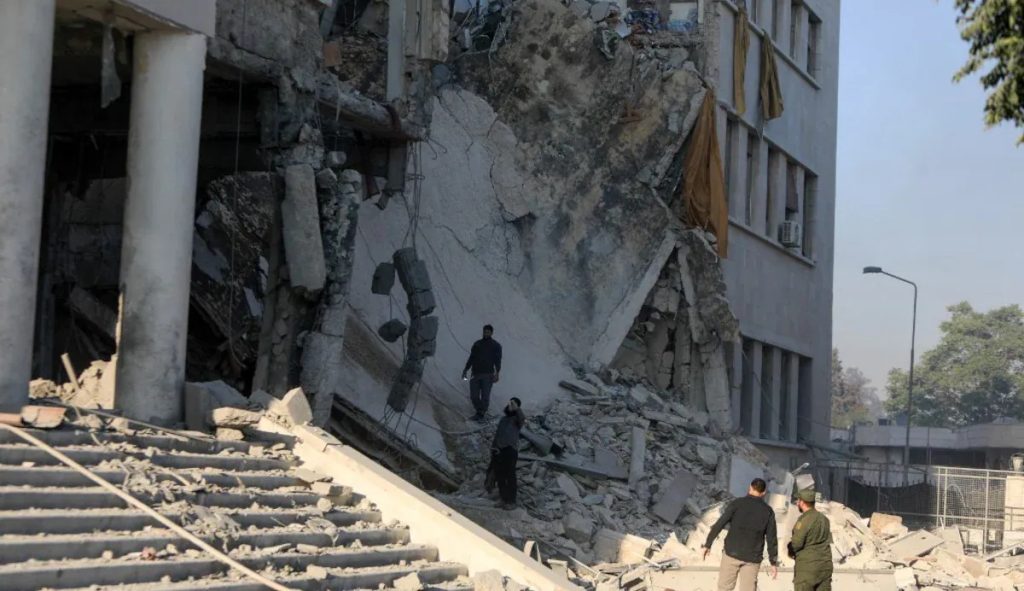Africa
Nigeria Issues Flood Alert for 11 States as Heavy Rains Loom

The Federal Government has issued a flood alert for 38 locations spread across 11 Nigerian states, warning that heavy rainfall expected between Wednesday, July 16, and Sunday, July 20, 2025, could result in significant flooding in vulnerable communities.
The warning was released by the National Flood Early Warning Centre, which operates under the Erosion, Flood, and Coastal Zone Management Department of the Federal Ministry of Environment.
The alert, signed by the department’s Director, Usman Bokani, highlights regions at risk and urges local authorities and residents to prepare for possible flood-related disruptions.
The states identified as high-risk zones include Adamawa (Mubi), Akwa Ibom (Edor, Upenekang, Oron, and Eket), and Borno (Ngala and Maiduguri).
Also listed are Bauchi (Azare, Bauchi, Itas, Jama’are, Kafin-Madaki, Jama’a, Kari, and Misau) and Plateau (Jos, Bukuru, and Mangu).
Other states projected to be affected are:
- Yobe (Jakusko, Machina, and Dapchi); Katsina (Daura);
- Kano (Kunchi, Kano, Gezawa, Wudil, Bebeji, Sumaila, and Tudun Wada); and,
- Jigawa (Miga, Gwaram, Diginsa, Ringim, and Dutse);
- Cross River (Calabar and Akpap) and,
- Zamfara (Bungudu and Gusau) are also on the list.
This warning follows the Federal Government’s recent move to enhance national flood preparedness through the creation of a comprehensive National Flood Insurance Policy.
It is supposedly designed to offer a more proactive response to Nigeria’s increasing vulnerability to flood-related disasters.
During the opening of a Technical Committee Meeting in June, the Permanent Secretary of the Ministry of Environment, Mahmud Kambari, emphasized the urgency of tackling the growing frequency and impact of floods across the country.
The meeting was supposedly organized to develop the National Flood Insurance Policy and its implementation framework.
Represented by Kunle Awojemila, Deputy Director of the Department of Flood, Erosion Control, and Coastal Management, Kambari underscored that flooding had become a national emergency requiring immediate and strategic action.
Kambari noted that Nigeria must transition from a reactionary approach to a long-term, resilient flood management strategy.
He explained that the National Flood Insurance Policy would be a cornerstone in this shift, enabling communities, businesses, and governments to better withstand future climate shocks.
Citing contributing factors such as climate change, rapid urbanization, and poor infrastructure, the Ministry stated that these systemic issues have exacerbated the frequency and severity of flooding in recent years.
Many urban and rural areas lack adequate drainage systems, while deforestation and unregulated construction have further diminished the land’s natural ability to absorb excess rainfall.
The proposed insurance policy aims to mitigate these challenges by providing a financial buffer for those affected.
According to the Ministry, this safety net will help victims recover more quickly.
It will also reduce the fiscal burden on federal and state governments, which often provide emergency relief and post-disaster support.
The policy, once implemented, will promote shared responsibility for disaster management across all levels of government and the private sector.
By encouraging participation from both public and private stakeholders, the initiative is expected to foster a more coordinated and sustainable approach to mitigating flood risks nationwide.
Communities listed in the recent flood alert are encouraged to stay informed, monitor weather forecasts, and follow any instructions from emergency management agencies.
Local governments are also advised to activate contingency plans, clear drainage systems, and identify temporary shelters where necessary.
The Ministry concluded by reiterating its commitment to strengthening the nation’s resilience against natural disasters.
It noted that while early warnings are crucial, long-term solutions lie in sustainable planning, environmental protection, and effective policy implementation.
As climate variability continues to drive extreme weather patterns across the country, the Nigerian government appears to be laying the groundwork for a more forward-looking disaster risk management framework.
It should begin with timely alerts and backed by long-term insurance mechanisms.
For Diaspora Digital Media Updates click on Whatsapp, or Telegram. For eyewitness accounts/ reports/ articles, write to: citizenreports@diasporadigitalmedia.com. Follow us on X (Fomerly Twitter) or Facebook












